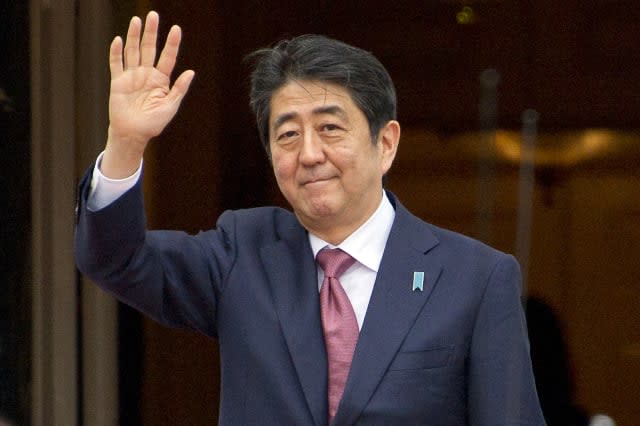Don't expect Japan to put up with the strengthening yen

The global currency wars continue.
Japan is looking like the loser right now in the "race to debase". The yen hit its strongest point in 18 months yesterday.
That's been bad news for Japanese stocks, which have performed poorly this year.
That's not how things are supposed to go. In the post-financial crisis world, you want a weak currency and a strong stockmarket, not the other way about.
But chances are, this is all about to change...
Why the yen is getting stronger
Yesterday, the yen strengthened to 107.67 against the dollar. That's a level it hasn't seen since October 2014, and at that point, it was passing it on the way to getting weaker.
This is a worry for Japan. A weak yen has been the key plank in "Abenomics" – prime minister Shinzo Abe's turnaround plan for the Japanese economy. And this has all been happening despite the Bank of Japan's surprise decision to turn interest rates negative in January, something that most people – presumably the BoJ included – thought should weaken the yen.
So what's going on? Why has the yen clawed its way back?
You'll hear people talking about "safe havens" (which frankly doesn't seem to make much sense when applied to Japan). The way I see it, it's fairly straightforward. It's more about the way that expectations have been changing since the start of this year.
When it comes to currencies, what matters is the market's expectation of "real" interest rates – in other words, the interest rate after accounting for inflation.
In the US, inflation is already in place and rising. Meanwhile, the Federal Reserve is giving the impression of being intensely relaxed about US inflation, and in no hurry to raise interest rates.
So on the one hand, the Fed's key rates will stay static. On the other, inflation is rising. As a result, real interest rates look set to fall. So the dollar – all else being equal – starts to look less attractive.
In Japan, despite all the efforts of Abe, inflation is still struggling to take hold. And probably more importantly, unlike the Fed, the Bank of Japan is not seen as being quite as laid-back.
So you have an economy still wobbling over a deflationary precipice, and a central bank that seems to lack the conviction to deal with it.
Put it that way, and it's easier to believe that "real" rates in the US will fall faster than in Japan. And all else being equal, that makes the yen more attractive.
The BoJ is stacking the odds in its favour
There's a lot more to the Japanese recovery than just a weak currency, as we've discussed in MoneyWeek before.
However, there's little doubt that the Japanese central bank won't be happy to see this going on. And the stronger the yen gets, the more likely it is that the central bank tries to pull of some sort of "shock and awe" manoeuvre again.
That's going to become a lot easier soon. As Reuters notes, BoJ governor Haruhiko Kuroda "will have a more compliant board when two upcoming vacancies are filled, which critics say could limit debate on his controversial policies and leave the bank vulnerable to government pressure to bankroll public debt."
You see, one other factor boosting the yen right now might be the lack of conviction from the BoJ. Kuroda's negative-rate surprise only just scraped past the Japanese monetary policy committee, by five votes to four.
And it's not the first time, says Reuters. Kuroda's "radical policies... have frequently only cleared the BoJ board... by the slimmest of margins."
But this month, one of the naysayers is being replaced by "think tank executive Makoto Sakurai, an advocate of reflationary policies." In June, another member of the "awkward squad" is on the way out too.
Is groupthink a good thing? Not at all. But it's pretty clear that Kuroda thinks he needs to do "whatever it takes" to reflate the Japanese economy. Once the deck is stacked in his favour, the chances are that he will get even more radical. And again, the lesson so far is that markets reward central bank radicalism.
That's why I'm happy hanging on to my Japanese stocks. I suspect we'll be in for a big rebound later this year.
Russell Napier talked about this more in his recent interview with my colleague Merryn. If you haven't already seen it, you can catch it here.




